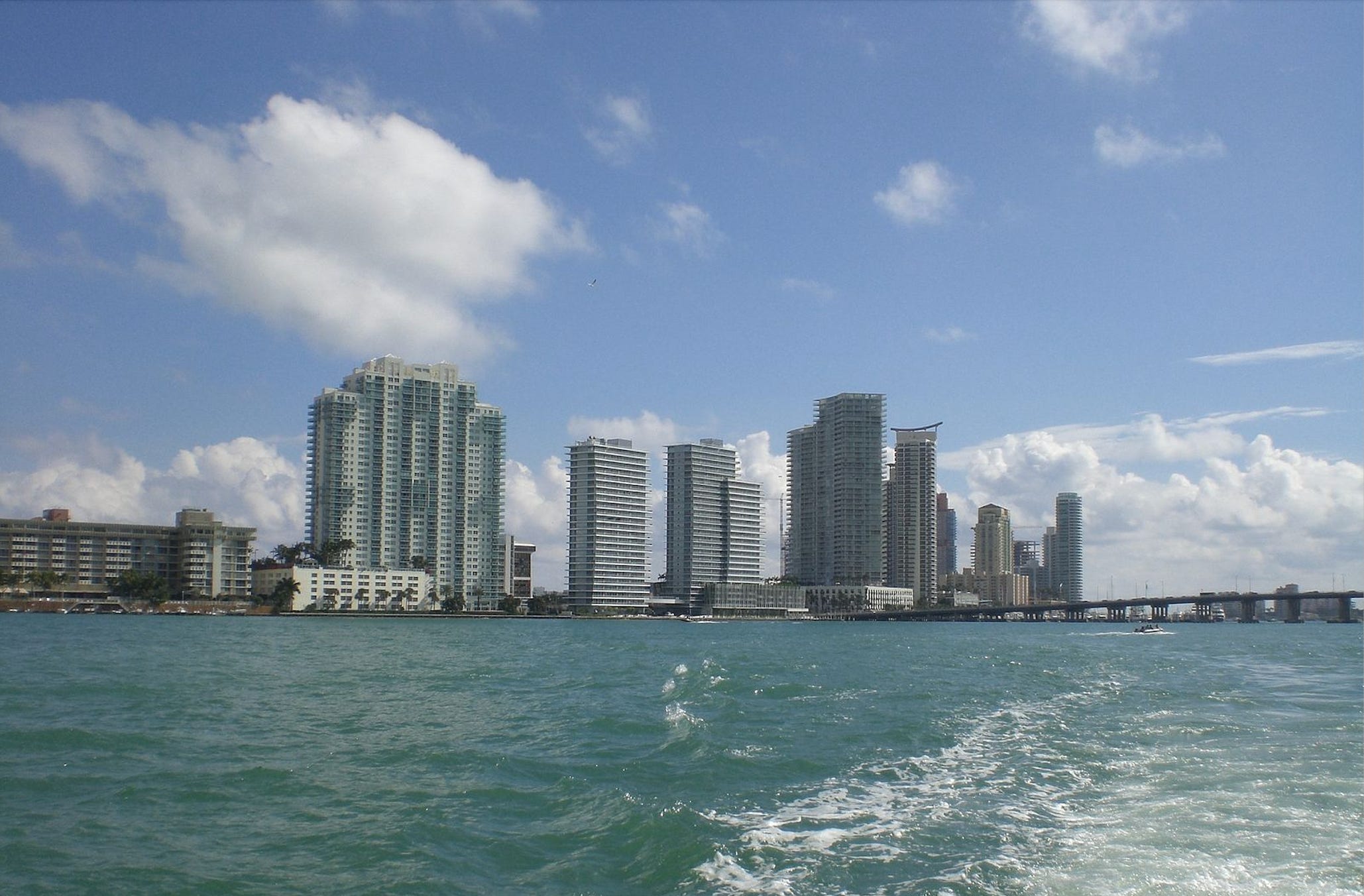
Existential Miami: a guide
In 2001, Daniel Kalder flew to Manhattan to visit his lawyer friend Jerry.Then he went to Coney Island where he spent about ten minutes on the beach. Now, the story continues….
I
A few months later, Jerry left New York. A year or two short of 30, he was starting to accept that there was no way out, that the thing he had trained to become was what he was going to become. As sure as death, the law was his destiny. He could still change his surroundings, though, and so moved to Miami. “If I have to do something I hate for a living, then at least I’ll be able to go for a swim in the ocean every morning,” he said.
Jerry invited me to visit; I accepted, although Miami was not a place in which I had ever imagined myself existing. Miami, after all, was one of the hyperreal dream-beaches of the world, part of a select group that included Rio de Janeiro or San Tropez. It was sex and cocaine, oiled muscles and chemical breasts, shoulder pads and nightclubs, neon and palm trees, Cuban music and Jan Hammer’s synthesizer, Crockett and Tubbs and Tony Montana yelling say hello to my little friend before spraying his enemies with bullets. Miami was a hedonistic zone for people who inhabited their bodies fully and who enjoyed feeling the sun on their skin; it was a place, above all, for people who liked beaches.
None of that applied to me. And yet, one year after my trip to New York, I found myself stepping off a plane at Miami International Airport, not quite sure about what I was going to do for the next seven days. I had bought a guidebook but had quickly grown bored reading it; Miami was thin on the ground when it came to the shadowy corners and subterranean manifestations I typically sought out when visiting a new place. Still, I was sure things would turn out alright. It was a big city; there had to be something interesting in it.
It was only as Jerry drove me over the bridge that connected Miami to Miami Beach that I realized I had a problem. I knew from the guidebook that Miami Beach was a city in its own right, distinct from Miami proper. But as Jerry now explained, unlike in NYC, there was no meaningful public transport. And as he would be working, I had no means of getting from one city to the other—unless I wanted to rent a car for a few days.
“I can’t drive,” I explained.
“Well, that’s no problem,” he said. “Miami sucks. Downtown is just a bunch of office blocks that close at 6. Little Havana and Little Haiti are OK, but that’s about it. As for Miami Beach, it’s pretty small… it’s really just Collins Avenue, Ocean Drive and the beach. But my condo is just four blocks from the water, so you can just go swimming and chill on the sand during the day, then we can hang out when I get back from work.”
“I hate beaches,” I said. “And I can’t swim.”
Jerry glanced over at me, as if I had to be joking. This was a degree of willful uselessness he could not understand; an inexplicable failure to accept the healthy practices of mainstream society. No doubt it was especially confusing because I had flown across the Atlantic to spend a week at one of the most famous beaches in the world; I was a little confused about that myself. The conversation dried up, although we successfully reactivated it over dinner that evening.
“I’ve noticed something very strange,” said Jerry. “A lot of the guys here wax their bodies. I go to the beach, and all these hairless men are just walking around, completely smooth!”
As I write this, two decades into the 21st century, male grooming has become completely normalized—a lucrative business, even. But back then it was still surprising.
“Seems unmanly to me,” I said.
“I’d never do that,” Jerry agreed. “Well, except for my back. Maybe I’d wax that. Chicks don’t like a dude with a hairy back.”
To read the rest, visit Thus Spake Daniel Kalder